
Fellows
Photo Credit (top image): Caroline McFarland / Unsplash
2024 Fellows
Anjali DasSarma
University of Pennsylvania
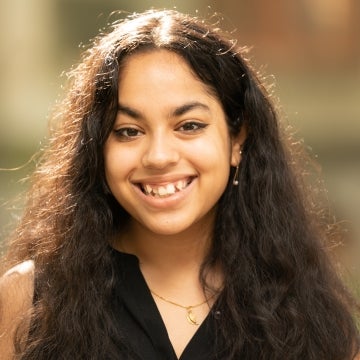
Anjali DasSarma's work examines both the cultural studies and political economy of journalism, centering journalists as actors in the production of knowledge, norms, and history as well as aiming to understand structures of media power, capitalism, and hegemony.
DasSarma is deeply invested in the project of multi-directional histories within journalism’s self-reflexivity. Through the avenue of journalism history, she aims to understand how slavery and colonial violence co-construct the universe of journalistic apology and correction we see in contemporary times. She has been a MIC Fellow with Media 2070 since 2023, working to understand the history of the FCC and racism. This summer with COMPASS, DasSarma will be continuing her efforts with Media 2070 to recenter media reparations as a tool for dreaming of media justice and futures.
DasSarma received her Bachelor of Arts in Media and Communication Studies from the University of Maryland, Baltimore County in 2021 after working as Editor-in-Chief of the student newspaper and interning at The Baltimore Sun and the Newseum (among other institutions).
Following these experiences, DasSarma completed her Master of Arts in American Studies at Brown University in 2022. While at Brown, her research focused on the relationship between Indigenous slavery and the history of advertising in American journalism. She served as a Research Assistant on the Stolen Relations project, a database that aims to archive stories of Indigenous enslavement. This work culminated in a co-authored article entitled “The Persistence of Indigenous Unfreedom in Early American Newspaper Advertisements, 1704-1804” published in the journal Slavery & Abolition.
As a Fellow at Free Press, DasSarma hopes to continue to more fully understand critical histories of journalism as well as to participate in the project of making media reparations a reality, both politically and in the broader social imaginary. She will also be involved in visualising what journalism with an ethic of care and with frameworks of repair might look like.
DongWook Jeong
Pennsylvania State University
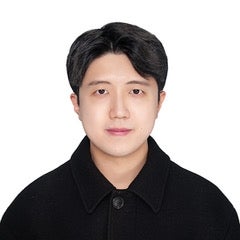
DongWook Jeong is a Ph.D. student at the Donald P. Bellisario College of Communications at Pennsylvania State University. His research focuses on the impact of algorithm-based over-the-top services (OTT) on media diversity. He explores the historical context of regulations regarding media diversity and aims to propose a comprehensive framework for both conceptual and operational definitions and evaluations of diversity. This framework considers three dimensions: platform, ownership and viewpoint diversity as well as access perspectives. DongWook believes that reliable and affordable broadband is crucial for users to be exposed to diverse content and viewpoints. As part of his research, he aims to investigate and map the broadband divide, considering factors such as ethnicity, income, redlining grade, and other socio-economic factors. Before joining Penn State, DongWook completed his B.A. and M.A. in Media and Communication at Korea University in Seoul, South Korea.
DongWook will be a Fellow at the Benton Institute for Broadband and Society.
Dien Luong
University of Michigan
Dien Luong is currently a PhD student in Communication and Media at the University of Michigan. Luong's research probes the complex nexus of geopolitics and social media, scrutinizing online censorship, Big Tech-government relations, and the evolving media landscape. Luong's scholarly contributions include book chapters and monographs, complemented by a portfolio of OpEds in various publications, including the New York Times, the Washington Post, Foreign Policy, the HuffPost, the Guardian, Nikkei Asia, South China Morning Post, among others. He has held fellowship positions at the ISEAS-Yusof Ishak Institute in Singapore and the Ash Center at the Harvard Kennedy School. Before joining the University of Michigan, Luong earned his master's degree in journalism at the Columbia Journalism School as a Fulbright scholar.
As a 2024 COMPASS Fellow, Luong is interested in researching the various digital threats that journalists face globally, such as cyberstalking, online malware attacks, third-party hacking, and state surveillance. Luong's project aims to bridge the gap between theoretical knowledge and practical measures to safeguard journalists, especially in politically volatile environments. His research seeks to investigate initiatives by advocacy organizations which support journalists in unsafe political contexts. The study will employ a mixed-method network ethnography approach to map the global ecosystem of Civil Society Organizations and International Non-Governmental Organizations involved in digital advocacy. The goal is to assess the effectiveness of these efforts in influencing journalists in diverse geopolitical settings and understand the impact of digital transformation on newswork in societies beyond Western industrialized nations.
During his fellowship at the US Agency for Global Media (USAGM), Luong aims to focus on three key areas of research: identifying knowledge networks, assessing the accessibility of these networks and resources across different geopolitical contexts, and polling journalists' opinions on the usefulness of these resources. Luong hopes to contribute to USAGM's initiatives to enhance the safety and effectiveness of journalists working in challenging environments. Additionally, Luong aims to develop more effective support mechanisms for journalists in the digital age and tailor USAGM's support to meet the specific needs of journalists in regions where press freedom is under threat.
Alphoncina Lyamuya
University of Southern California
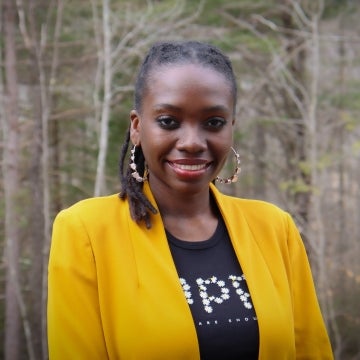
Alphoncina Lyamuya is a Ph.D. student at the Annenberg School for Communication and Journalism at the University of Southern California. Her research interests lie at the intersection of emerging digital technologies, transnational governance, and inequality. Specifically, her work focuses on the social and policy implications of automated systems and digital infrastructure as designed and deployed by organizations in humanitarian management and international development domains. Through inter-organizational collaboration and coordination on ICT fronts – usually between humanitarian/development agencies, government agencies, and private tech/telco companies – she examines embedded values and implications on digital rights and equity, especially for marginalized communities in the Global South.
Lyamuya holds a Master of Public Policy & Administration with a graduate certificate in Data Analytics and Computational Social Science, and a BA in Legal Studies from the University of Massachusetts Amherst. She is also a graduate student affiliate with the Center for Information, Technology, and Public Life (CITAP) at UNC.
Lyamuya will be a fellow at the World Benchmarking Alliance (WBA).
Afrooz Mosallaei
Rutgers University
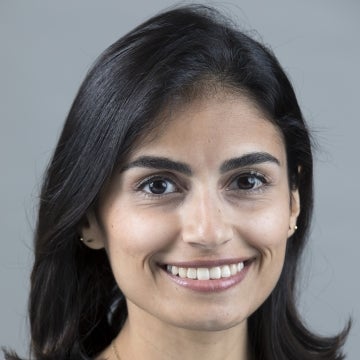
Afrooz Mosallaei is a Ph.D. candidate in Journalism and Media Studies at Rutgers University. Her research is driven by a commitment to understanding and influencing the interplay between digital media, public opinion, and policymaking in the context of a significant global challenge—the climate crisis. She is particularly interested in how media can address misinformation about climate change, promote sustainable practices, influence political decisions, and facilitate global collaboration to tackle this crisis.
Her doctoral dissertation investigates climate-related news platformization, i.e., the news outlets’ selective adaptation and production of news in line with social media platforms’ logic and the contemporary gatekeeping practices of newsroom editors.
Mosallaei’s work has been recognized with a national academic award in 2022 at the Association of Education in Journalism and Mass Communication (AEJMC) and presented at other reputable conferences such as the National Communication Association (NCA) and the Canadian Communication Association (CCA). Prior to joining Rutgers, she received her M.S. in Communication, Culture, and Media from Drexel University. She also holds a B.A. in Photography from the University of Tehran, Iran.
During her fellowship at Free Press, Mosallaei aims to contribute to the organization's mission by conducting in-depth policy research. This involves monitoring legislative and regulatory developments, identifying emerging challenges and opportunities in the media and platforms landscape, and providing evidence-based analysis to inform Free Press's advocacy efforts in promoting media reform, press freedom, and diversity.
Roxana Muenster
Cornell University
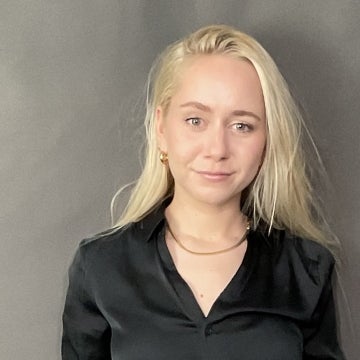
Roxana Mika Muenster is a PhD student at the Department of Communication at Cornell University and a graduate affiliate at the Center for Information, Technology, and Public Life at the University of North Carolina. She researches social movements and the digital right, and as such works across the topics of mis- and disinformation, conspiracy, and digital platforms. She is particularly interested in how politics creep into ostensibly nonpolitical lifestyle topics, and the role this plays in how ideology is disseminated. Her current research examines the relationship between health misinformation and political content, conspiracy, and ideology on social media and e-commerce platforms.
Prior to Cornell, Roxana completed her MSc in Politics & Communication at the London School of Economics and Political Science, and her BA in Linguistics and Communication Science at the Free University of Berlin. She has a background in research and journalism, most recently as the Marjorie Deane Fellow at The Economist.
Roxana will be a Fellow at the Brookings Institute. She will be working at the Center for Technology Innovation.
Vanessa Nyarko
University of Minnesota
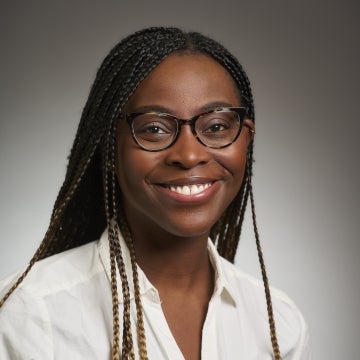
Vanessa Nyarko is a PhD candidate in Communication Studies with a minor in Moving Image Studies at the University of Minnesota-Twin Cities. Her research interests are in emerging technologies, media history, technology policy, popular culture, and the political economy of media. She specializes in studies of the metaverse, virtual reality, and reproductions of racism and sexism in digital spaces. Nyarko’s research centers on media’s intersections with society and culture, especially media and communication technologies.
Before her doctoral program, she worked in communications and development in Ghana and South Africa. Her most recent position was with Hennepin County’s Office of Broadband and Digital Inclusion, where she helped the county promote the FCC’s Affordable Connectivity Program to residents. She received her B.A. in Journalism & History from the University of Minnesota-Twin Cities.
As a fellow at Public Knowledge, Nyarko will work on a qualitative study focused on naming and bridging the digital divide. The purpose of the study is to engage low-income and middle-income households across different regions of the United States and various backgrounds to develop, in their own words, a blueprint for digital equity. Through her fellowship, she aims to shed light on the unarticulated aspects of the digital divide and the social construction of digital equity and technology.
Stephen Yang
University of Southern California

Stephen Yang is a doctoral student at the Annenberg School for Communication and Journalism at the University of Southern California, where he is supported by the National Science Foundation's (NSF) Graduate Research Fellowship. His research reimagines our sociotechnical futures amidst shifting policies, emerging technologies, and social change. With an eye on the speed and scale at which generative AI operates, he examines how people make sense of the shifting rhythms of cultural creation and the changing timescales of participatory infrastructures. Beyond his doctoral work, he also works as an expert consultant for Partnership on AI, a nonprofit coalition committed to responsible AI. There, he develops open-access learning modules that guide tech practitioners through equity-centered approaches to AI design and development.
Previously, Yang interned at the Social Media Collective at Microsoft Research New England, where he examined emerging trends in creator culture, content moderation, and the future of work. He holds a B.S. in Communication and Information Science from Cornell University.
In Summer 2024, Yang will be a Fellow at the Center for Democracy and Technology as part of the AI Governance Lab. There, he will zoom in on two topics –– (1) public participation in AI governance and (2) governance of generative AI in the cultural and creative industries. To grapple with ways to build more democratic and equitable futures with AI, he hopes to promote the view that tech practitioners and policymakers should include the public in broader discussions on AI governance. Specifically, he aims to foreground a worker-centered perspective on how the use of generative AI for creative practices raises particular considerations for technology design and policymaking.
Past Fellows
Ahmed Alrawi, Pennsylvania State University, Benton Foundation
Talia Berniker, Cornell University, Federal Communications Commission
Timilehin Durotoye, Pennsylvania State University, Open Markets
Emilie Grybos, University of Pennsylvania, Center for Democracy and Technology
Kyooeun Jang, University of Southern California, Brookings Institution
Anirban Mukhopadhyay, University of Illinois Urbana-Champaign, United States Agency for Global Media
Jeanna Sybert, University of Pennsylvania, Free Press
Benjamin P. Tetteh, Syracuse University, United States Agency for Global Media
Lucas Wright, Cornell University, National Telecommunications and Information Administration
Soyun Ahn, University of Southern California, Brookings Institution
Sydney Forde, The Pennsylvania State University Common Cause
Assil Frayha, University of Pennsylvania, Center for the Study of Responsive Law
Juan Ortiz Freuler, University of Southern California, Open Markets Institute
Joshua Jordan, Louisiana State University, The Democracy Collaborative
Louisa Lincoln, University of Pennsylvania, American Journalism Project
Rae Moors, University of Michigan, Ranking Digital Rights
Adetobi Moses, University of Pennsylvania, John Hopkins Bloomberg School of Public Health’s Center for Communication Programs
Arijit Paladhi, Indiana University, Free Press
Alejandro Alvarado Rojas, University of Southern California, Open Technology Fund
Erika Solis, The Pennsylvania State University, Ranking Digital Rights
- Sanjay Jolly, University of Pennsylvania, Public Knowledge
- Antoine Haywood, University of Pennsylvania, Alliance For Community Media
- Florence Madenga, University of Pennsylvania, United States Agency for Global Media
- Ryan Wang, Pennsylvania State University, National Digital Inclusion Alliance
- Chioma Woko, University of Pennsylvania, Johns Hopkins University Center for Communication Programs
- Maria Skouras, University of Texas at Austin, Advisory Council for Public Diplomacy
- Christoph Mergerson, Rutgers University, Brookings Institution
- Chloé Nurik, University of Pennsylvania, Federal Communications Commission
- Azeb Madebo, University of Southern California, Ranking Digital Rights
- Danyel Ferrari, Rutgers University, The U.S. National Committee of the International Council on Monuments and Sites
- Lauren Bridges, University of Pennsylvania, Open Markets Institute
- Yang Bai, Pennsylvania State University, National Digital Inclusion Alliance
- Thomas Billard, University of Southern California, National Center for Transgender Equality
- Richelle Crotty, University of Texas – Austin, Free Press
- Nathaniel Ming Curran, University of Southern California, Korean Economic Institute of America
- Eric Forbush, University of Pennsylvania, Brookings Institution
- Anna Loup, University of Southern California, Center for Democracy and Technology
- Paul Popiel, University of Pennsylvania, Free Press
- Emily Saidel, University of Michigan, National Association of Broadcasters
- Jana Wilbricht, University of Michigan, National Digital Inclusion Alliance
- Joseph Yoo, University of Texas – Austin, New America/Ranking Digital Rights
- Hyeri Jung, University of Texas – Austin, USC Annenberg Center on Communication Leadership and Policy
- Hyun Tae (Calvin) Kim, University of Southern California, Sister Cities International
- Jillian Kwong, University of Southern California, National Institutes of Health
- Rachel E. Moran, University of Southern California, Campaign Legal Center
- Revati Prasad, University of Pennsylvania, New America Foundation & Ranking Digital Rights
- Matt Reichel, Rutgers University, Free Press
- Sonia Jawaid Shaikh, University of Southern California, World Bank
- Alex Williams, University of Pennsylvania, Pew Research Center
- Opeyemi Akanbi, University of Pennsylvania, New America Foundation
- Alexis D. Schrubbe, University of Texas – Austin, Common Cause
- Douglas Allen, University of Pennsylvania, Information Technology & Innovation Foundation
- Cat Duffy, University of Southern California, Department of Health and Human Services
- Katherine Elder, University of Southern California, National Institute of Health
- Michelle Forelle, University of Southern California, Common Cause
- Brandon Golob, University of Southern California, Institute for Public Representation – Georgetown Law
- Nicole Hentrich, University of Michigan, National Center for Lesbian Rights
- Nathalie Marechal, University of Southern California, New America Foundation
- Aalok Mehta, University of Southern California, Public Knowledge
- Angeline Sangalang, University of Southern California, Department of Health and Human Services
- Xin Wang, University of Southern California, World Bank
- Alex Williams, University of Pennsylvania, Pew Research Center’s Project for Excellence in Journalism
- Deepti Chittamuru, University of Pennsylvania, World Bank
- Nikita Hamilton, University of Southern California, Common Cause
- Tim Libert, University of Pennsylvania, New America Foundation
- Aalok Mehta, University of Southern California, Free Press
- Kitior Ngu, University of Michigan, New America Foundation
- Benjamin Pearson, University of Michigan, Internews
- Laura Silver, Penn Annenberg placed at State Department
- Katie Allen, University of Pennsylvania, Internews
- Katherine Holland, University of California – Santa Barbara, Consumers Union
- Dam Hee Kim, University of Michigan, Federal Communications Commission
- Aalok Mehta, University of Southern California, New America Foundation
- Brice Nixon, University of Colorado – Boulder, Media and Democracy Coalition
- Jaclyn Selby, University of Southern California, Center for Democracy and Technology
- Jason Smith, George Mason University, New America Foundation
- Sarah Stonbely, New York University, New America Foundation
- Russ Newman, University of Southern California, Federal Communications Commission
- Seyram Avle, University of Michigan, Internews and the Aspen Institute
- George Nardis, University of Michigan, Alliance for Community Media
- Ann-Katrin Arnold, University of Pennsylvania, World Bank
- Matt Blanchard, University of Pennsylvania, Federal Communications Commission
- Brett Bumgarner, University of Pennsylvania, Representative Maurice Hinchey‘s office (D-NY)
- Russ Newman, University of Southern California, New America Foundation
- Elliot Panek, University of Michigan, Media and Democracy Coalition
- Olesya Venger, University of Pennsylvania, Center for Digital Democracy
- William Youmans, University of Michigan, Senator Bernie Sanders’ Office (I-VT)
- Hope Cummings, University of Michigan, Representative Maurice Hinchey‘s office (D-NY)
- Antonio Lambino, University of Pennsylvania, World Bank
- Sascha Meinrath, University of Illinois, Telecommunications Fellow (long term fellowship)
- Russ Newman, University of Southern California, Senator Dick Durbin’s office (D-IL)
- Mario Rodriguez, University of Pennsylvania, Senator Bernie Sanders’ Office (I-VT)
- Brian Dolber, University of Illinois, Representative Diane Watson’s office (D-CA)
- Kamilla Kovacs, University of Illinois, Representative Maurice Hinchey’s office (D-NY)
- Victor Pickard, University of Illinois, Representative Diane Watson’s office (D-CA)
- Ben Scott, University of Illinois, Representative Bernie Sanders‘ Office (I-VT)
